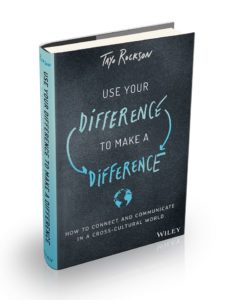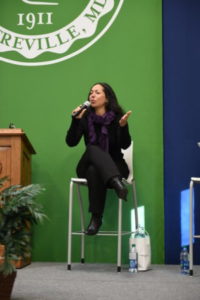 The fall semester is now underway for institutions across the U.S. and before you know it November will be here, and along with it, the Bureau of Educational and Cultural Affairs’ International Education Week (IEW)! November becomes a great excuse to cheerlead the beauty of sojourning and appreciating cultures. Here are some ideas to easily inspire an awareness and appreciation for global travel and cross-cultural understanding:
The fall semester is now underway for institutions across the U.S. and before you know it November will be here, and along with it, the Bureau of Educational and Cultural Affairs’ International Education Week (IEW)! November becomes a great excuse to cheerlead the beauty of sojourning and appreciating cultures. Here are some ideas to easily inspire an awareness and appreciation for global travel and cross-cultural understanding:
1. Puzzle it out: I lose sleep imagining how few people in the US can actually identify major countries across the globe. One easy way to encourage folks to think about where countries reside on a map is to have a table in a well trafficked place (e.g. student union, office lobby, cafeteria, etc.) with a KID’s version of a global puzzle. Have folks stop by and ask them do the puzzle and then give them an incentive to learn more about the world once they solve it. Inevitably they’re either going to feel very proud of how quickly they completed the puzzle OR have a heightened awareness of how little they know about the world map! You can offer puzzles by region of the world – which align nicely with “Where do you want to study abroad?” or “Where are you from?” too. Do what works for YOUR community – for example, if you’re an office that specializes in relocating people to China, use a puzzle of the Chinese provinces.
2. Food is Culture: Partner with your community’s dining services to highlight an ingredient from around the world. Have a poster or flyer describing the origin of the ingredient to provide more detailed information about how that ingredient migrated regionally or globally. For example, did you know that okra originated in Southern Ethiopia? Most people think it is from the US South! (If you want to read more about that myth, read MIchael Twitty’s book – The Cooking Gene).

3. Have a common IEW book read: An easy way to gather people of diverse perspectives together is around a common read. This year, I highly recommend a new book by Tayo Rockson called Use Your Difference to Make a Difference: How To Connect and Communicate in a Cross-Cultural World. I’m picking this book for two reasons – the first is that unlike many books on the topic of cultural competency, this one is practical (not theory driven). It is written by a man from Nigeria, a Adult Third Culture Kid (ATCK), and under 30 years old. Basically, you can pick it up and read it, apply it, and feel deeply engaged in his methods for engaging across cultures. The second reason I selected it is because Tayo is a Melibee speaker and he’s able to visit your community to give a lecture about the important work of cross-cultural dialogue as well as offer a book signing. You can read more about that here!

4. Get them talking: Another approach to creating dialogue about cross-cultural awareness and international education is to have a keynote speaker deliver an inspiring talk – someone from outside your community who has a new perspective to share! This year, we have a few new offerings including Candace Doby’s talk on Translating Travel Skills into Leadership Skills and Jennifer Hamady’s interactive talk/discussion on Voice Across Cultures. You can check out more options here.
5. Art Across Cultures: We’ve touched on using our senses to enhance our awareness of global opportunities (smell/taste through food and sound through public talks) but what about the using our sight? A visual idea is to hang an art display with paintings or images from different parts of the world. This post provides a sample of different art styles from Europe, India and Japan. You can also put a world map near each art piece and highlight the country (and city) of the art’s origin – and post flyers about study abroad or travel opportunities to each location as well as share some stats about the number of students/employees who hail from that part of the world.
IEW is a beautiful excuse to tap into our love of culture and educational travel. I’m eager to hear what other IEW ideas you have for 2019! Be sure to share them in the comments below!

